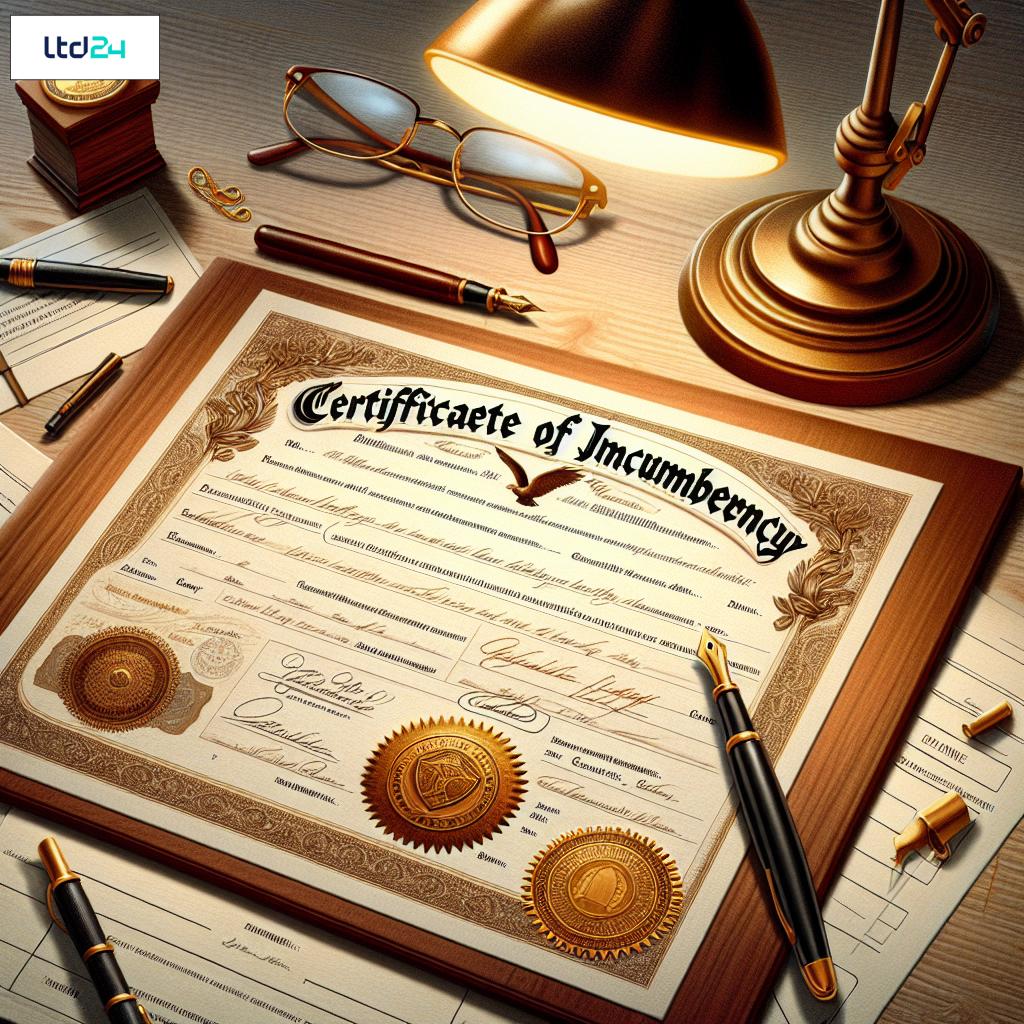Understanding the Fundamental Nature of General Partnerships
General partnerships represent one of the most foundational business structures in commercial law, characterized by their relative simplicity and lack of formality compared to other business entities. At its core, a general partnership is established when two or more persons agree to conduct business together and share profits and losses. Unlike limited liability companies (LLCs) or corporations, general partnerships form automatically when the partners begin business operations, even without any formal documentation or state registration. This automatic formation is a distinctive characteristic that often creates confusion regarding legal requirements. The partnership automatically comes into existence under common law principles that date back centuries, embedded in traditional commercial jurisprudence across numerous jurisdictions. These foundational principles have been codified in most states through the adoption of either the Uniform Partnership Act (UPA) or the Revised Uniform Partnership Act (RUPA), which provide the legal framework governing partnership operations, rights, and responsibilities. Partnership law represents an intersection of contract law and business principles, creating a unique legal entity without necessarily requiring formal state recognition as a prerequisite to its existence. For entrepreneurs considering various business structures for UK operations, understanding these foundational elements becomes crucial to making informed decisions.
State Registration Requirements: Variation Across Jurisdictions
The requirements for registering a general partnership vary significantly across different states and jurisdictions, creating a complex regulatory landscape for business owners to navigate. While general partnerships exist by operation of law rather than through state filing, many states nonetheless impose certain registration or filing requirements. In most U.S. states, partnerships must file some form of document, commonly called a "Statement of Partnership Authority," "Certificate of Partnership," or "Doing Business As" (DBA) registration if they operate under a name different from the partners’ surnames. For example, California requires partnerships to file a Statement of Partnership Authority with the Secretary of State, while New York mandates filing a Certificate of Assumed Name if operating under a trade name. Some jurisdictions, such as Delaware, have minimal requirements, reflecting their business-friendly approach to enterprise formation. The legal significance of these filings varies—they typically do not create the partnership itself but rather provide public notice of its existence and establish certain evidentiary presumptions regarding partner authority. According to a 2022 survey by the National Association of Secretaries of State, compliance rates with partnership registration requirements vary between 62-89% across different states, highlighting both awareness gaps and intentional non-compliance. Partnerships operating across multiple jurisdictions face additional complexity, as they may need to comply with registration requirements in each state where they conduct business. For international businesses considering UK incorporation services, these jurisdictional variations become important considerations in global business planning.
Legal Consequences of Non-Registration
Failure to register a general partnership when required by state law can trigger a cascade of legal and practical consequences that may significantly impact business operations. While non-registration does not invalidate the partnership’s existence, it can create substantial operational impediments. The most common consequence is the inability to bring legal actions in state courts until the registration deficiency is remedied. For instance, in states like California and New York, an unregistered partnership cannot maintain a lawsuit until it complies with registration requirements, potentially leaving partners without legal recourse in disputes with third parties. Additionally, monetary penalties for non-compliance can accumulate, with fines ranging from nominal amounts to several thousand dollars, depending on the jurisdiction and duration of non-compliance. Some states impose daily penalties that compound over time, creating significant financial exposure. Beyond statutory penalties, unregistered partnerships may face practical difficulties in opening bank accounts, securing financing, or entering contracts with government entities or large corporations that require verification of legal status. The ability to protect the partnership’s name through trademark enforcement may also be compromised without proper registration. As noted in Northwestern Journal of Business Law (Vol. 18, 2023), courts have increasingly enforced these penalties strictly, limiting equitable relief for non-compliant partnerships even in cases of good faith oversight. For businesses concerned with proper company registration procedures, these potential consequences underscore the importance of thorough compliance planning.
Tax Registration vs. State Business Registration
A critical distinction exists between tax registration and state business registration requirements for general partnerships, creating parallel compliance obligations that often confuse partners. Even when state business registration may not be mandatory, tax registration requirements operate independently and are typically non-negotiable. General partnerships must obtain an Employer Identification Number (EIN) from the Internal Revenue Service if they have employees, operate as a multi-member partnership, or meet certain other criteria specified in Treasury Regulations §301.7701-1 through §301.7701-3. At the state level, partnerships typically must register with state tax authorities for various state-level tax obligations, including sales and use tax, employment taxes, and in some jurisdictions, partnership income taxes. According to the Federation of Tax Administrators, approximately 73% of partnerships that fail to complete state business registration still comply with federal tax registration requirements, indicating greater awareness of tax compliance obligations. These tax registrations serve distinct purposes from business entity registrations—they facilitate tax collection and reporting rather than establishing the partnership’s legal existence or public notice of business operations. The temporal requirements also differ; tax registrations typically must be completed before specific taxable events occur (such as hiring employees or making taxable sales), while business registrations may have different timing requirements based on state law. For international businesses seeking guidance on UK company taxation, understanding these distinctions becomes especially important in maintaining cross-jurisdictional compliance.
Benefits of Voluntary Registration
Even when state law does not mandate registration, general partnerships can derive substantial benefits from voluntary registration that may significantly enhance their business operations and legal position. Voluntary registration provides a formal record of the partnership’s existence, establishing clear evidence of formation date, partner identities, and other core organizational elements that may prove invaluable in disputes or transactions where such facts are contested. This documentation can be particularly useful in securing financing, as many lenders require evidence of legal formation and good standing before extending credit. Additionally, voluntary registration often facilitates name protection within the state’s jurisdiction, preventing other businesses from registering under the same or confusingly similar names. According to a 2023 study in the Journal of Small Business Management, partnerships that voluntarily register experience 27% fewer naming disputes than those that remain unregistered. The public notice function of registration also enhances credibility with customers, vendors, and potential business partners, who may perceive registered entities as more established and trustworthy. In certain industries where reputation and stability are particularly valued, this credibility premium can translate into tangible business advantages. Registration also typically enables access to state government contracting opportunities, as many procurement processes require vendors to be properly registered with state authorities. For businesses seeking to establish online operations in the UK, these voluntary registration benefits can be equally relevant in the British context.
State-Specific Requirements: A Comparative Analysis
The specific requirements for general partnership registration exhibit substantial variation across states, creating a complex compliance landscape that demands careful jurisdiction-by-jurisdiction analysis. In high-regulation states like California, partnerships must file a Statement of Partnership Authority (Form GP-1) with the Secretary of State and pay a filing fee of $70, with biennial renewal requirements and additional county-level fictitious business name registration if operating under a trade name. Contrastingly, in business-friendly jurisdictions like Wyoming, general partnerships need only file if operating under an assumed name, with minimal information disclosure requirements and fees as low as $30. New York represents a hybrid approach, requiring no general partnership registration at the state level but mandating county-level fictitious name certificates if not operating under partners’ surnames, with varying fees by county. Florida imposes more extensive disclosure requirements, including partner information, principal place of business, and federal employer identification number, with registration renewal every five years. Texas requires partnerships to file a Certificate of Formation only if they wish to become registered limited liability partnerships, otherwise maintaining minimal requirements for general partnerships. The American Bar Association Business Law Section’s annual survey found that processing times also vary dramatically, from same-day processing in Delaware to several weeks in more administratively burdened states like Illinois during peak filing periods. These variations create strategic opportunities for partnership formation depending on operational needs and compliance resources. International entrepreneurs interested in UK company formation services should similarly analyze jurisdiction-specific requirements within the UK system.
Fictitious Business Name Requirements
Separate from general business registration requirements, general partnerships operating under a name other than the surnames of all partners typically must comply with fictitious business name statutes, also known as "doing business as" (DBA) requirements. These laws serve the public interest function of enabling consumers, creditors, and other stakeholders to identify the actual persons conducting business under a trade name. In most jurisdictions, this requirement applies regardless of whether the partnership has completed other state registration procedures. The typical filing process involves submitting a fictitious name statement or certificate with the county clerk or similar local authority where the business operates, paying a filing fee (typically ranging from $25 to $100), and publishing notice in a newspaper of general circulation. This publication requirement, still maintained in approximately 37 states, represents a vestige of traditional notice mechanisms designed to ensure public awareness of business identities. The fictitious name registration generally expires after a set period (commonly five years) and must be renewed to maintain protection. According to the Small Business Administration’s Compliance Guide, approximately 41% of general partnerships operate under a trade name requiring fictitious name registration, yet compliance rates hover around 67%, indicating significant under-compliance. Failure to register a fictitious name can result in inability to enforce contracts executed under that name and monetary penalties in certain jurisdictions. For entrepreneurs considering business name registration in the UK, similar considerations apply, though under different procedural requirements.
Partnership Agreements and Their Relationship to Registration
While general partnership registration addresses the entity’s public-facing legal status, the partnership agreement serves as the internal governance document that defines rights and responsibilities among partners—and these two legal dimensions maintain a complex interrelationship. A written partnership agreement, though not legally required in most jurisdictions, represents best practice for clarifying expectations, responsibilities, and procedures for decision-making, profit sharing, and dispute resolution. The partnership agreement functions independently from registration requirements—a partnership without state registration but with a comprehensive written agreement still operates according to the agreed-upon terms among partners. However, registration can substantively impact certain aspects of partnership agreements. For example, when a partnership registers a Statement of Partnership Authority, the filing may establish presumptive authority designations that could override contradictory provisions in the partnership agreement with respect to third parties. According to a Yale Law Journal study (Vol. 131, 2022), approximately 67% of partnership disputes involving unregistered partnerships stem from ambiguities that proper registration documentation might have clarified. Some states require submission of partnership agreement excerpts during registration, potentially making portions of otherwise private agreements matters of public record. The temporal relationship also matters—registration typically references an existing partnership created by agreement rather than creating the partnership itself. For businesses seeking assistance with UK company directorship matters, understanding this interplay between formal documentation and registration becomes particularly important.
Foreign Partnership Registration Requirements
General partnerships that form in one state but conduct business in another jurisdiction face additional registration requirements as "foreign partnerships," creating a distinct compliance category with its own procedural mandates. When a partnership established in State A conducts business in State B, it typically must register as a foreign entity with State B’s secretary of state or equivalent authority. The threshold for registration varies by state but generally includes maintaining offices, employing workers, regularly conducting in-person business, or executing contracts within the foreign jurisdiction. This foreign registration process typically requires submitting information about the partnership’s home state formation, designated in-state agents for service of process, and payment of registration fees that often exceed domestic registration costs. According to the National Conference of State Legislatures, 43 states have enacted some version of the Uniform Foreign Partnership Act, creating relative procedural consistency despite substantive variations. The consequences of non-compliance with foreign registration requirements can be severe, including penalties, inability to maintain legal actions, and personal liability for partners conducting unauthorized business. The Commerce Clause of the U.S. Constitution places some limitations on states’ ability to restrict interstate commerce through overly burdensome foreign registration requirements, though states maintain significant regulatory authority in this domain. For international businesses considering offshore company registration with UK connections, these multi-jurisdictional compliance considerations have important parallels in the international context.
Registered Agents and Office Requirements
Most states that require general partnership registration also mandate the designation of a registered agent and office within the jurisdiction, creating logistical requirements that partnerships must satisfy for compliance. A registered agent serves as the partnership’s official representative for receiving service of process, legal notices, and official government correspondence, ensuring that important legal documents reach the partnership rather than being lost or delayed. This registered agent must maintain a physical street address (not a P.O. box) within the state during normal business hours. Partnerships can designate an individual partner as the registered agent if they reside in-state, appoint another reliable individual who meets residency requirements, or engage a professional registered agent service. According to the National Association of Secretaries of State, approximately 62% of partnerships utilize professional registered agent services rather than serving as their own agents, reflecting the logistical challenges of maintaining continuous availability. Changes to registered agent information must be promptly filed with the state to avoid compliance issues. Some states impose additional requirements, such as maintaining certain partnership records at the registered office or ensuring specific signage at the location. The registered office serves as the official address of record for the partnership and determines proper venue for certain legal actions involving the entity. For businesses seeking UK business address services, similar considerations apply regarding maintaining proper representation and physical presence for official communications.
Online Registration Portals and Procedures
State governments have increasingly digitized partnership registration processes, creating online portals that streamline compliance procedures while introducing new technical considerations for partnerships seeking to register. These electronic filing systems typically allow for direct submission of registration documents, payment of fees, and real-time confirmation of filing status, substantially reducing processing times compared to paper submissions. According to the National Association of Secretaries of State Technology Survey, 47 states now offer some form of online partnership registration, though capabilities vary significantly. Advanced systems in states like Delaware, Nevada, and Washington provide comprehensive dashboards for entity management, including initial registration, annual filings, and amendments. The technical requirements for these systems typically include secure authentication methods (often involving multi-factor authentication), compatibility with specific browsers and file formats, and electronic signature capabilities compliant with the Uniform Electronic Transactions Act. Many states have implemented integration with tax registration systems, allowing simultaneous completion of business and tax registration requirements. However, digital divides persist—rural areas with limited internet access face disproportionate challenges in utilizing these systems, and approximately 22% of state online filing systems experience technical outages exceeding 24 hours at least once annually. For partnerships with non-English-speaking partners, language accessibility remains variable, with only 16 states offering multilingual registration interfaces. For businesses interested in online company formation in the UK, similar digital processes have become standard practice.
Registration Fees and Financial Considerations
The direct and indirect costs associated with general partnership registration constitute important financial considerations that partnerships must factor into their formation and compliance budgeting. Direct registration fees vary substantially by jurisdiction, ranging from nominal amounts (as low as $25 in some states) to more substantial fees exceeding $500 in others. These fee structures often incorporate base filing fees, expedited processing surcharges, publication costs where required, and county-level fictitious name registration fees. Beyond these immediate filing costs, partnerships must consider ongoing compliance expenses, including periodic renewal fees (typically required every 1-5 years depending on jurisdiction), registered agent service fees (averaging $100-300 annually if using a commercial provider), and costs associated with filing amendments when partnership information changes. According to an analysis by the Journal of Accountancy, the total first-year compliance costs for properly registering a general partnership operating in three states averages approximately $1,200-1,800, with subsequent annual maintenance costs of $300-750. Some jurisdictions offer fee reductions for veterans, low-income entrepreneurs, or businesses operating in economically disadvantaged areas, creating potential savings opportunities for qualifying partnerships. The opportunity costs of registration—including partner time dedicated to paperwork preparation and submission—also constitute real economic costs, particularly for small partnerships with limited administrative resources. For businesses considering setting up a limited company in the UK as an alternative to partnership structures, similar cost factors apply, though within a different fee schedule.
Maintaining Good Standing After Registration
Once registered, general partnerships must fulfill ongoing compliance obligations to maintain their good standing status with state authorities, creating a perpetual administrative responsibility that extends beyond initial registration. These continuing requirements typically include filing annual or biennial reports that update or confirm partnership information, paying periodic fees or taxes, maintaining current registered agent information, and filing amendments when material changes occur in partnership structure or operations. Failure to maintain compliance can result in the partnership being designated as "not in good standing," which may trigger penalties, reinstatement fees, and potential loss of certain legal protections or business privileges. According to the Secretary of State Offices Collective Data Report, approximately 28% of registered partnerships fall out of good standing at some point, with the most common cause being missed annual report filings. In some jurisdictions, prolonged non-compliance may result in administrative dissolution or revocation of registration, requiring more complex and costly reinstatement procedures. Technology solutions have emerged to help partnerships manage compliance calendars, with automated reminder systems and compliance management platforms reporting effectiveness rates of over 90% in maintaining good standing. The logistical challenges increase for partnerships registered in multiple jurisdictions, as each state maintains independent compliance schedules and requirements. For businesses seeking assistance with UK company incorporation and ongoing bookkeeping services, similar continuous compliance considerations apply within the British regulatory framework.
Transitioning Between Business Structures
General partnerships often evolve into more complex business structures as operations grow, necessitating an understanding of how registration requirements change during entity conversion or transformation. Partnerships considering transitions to limited liability partnerships (LLPs), limited liability companies (LLCs), or corporations face numerous legal and tax considerations that interrelate with registration status. The conversion process typically involves filing appropriate documentation with the state—such as certificates of conversion or new entity formation documents—and may require existing partnership registration to be in good standing as a prerequisite. According to a U.S. Small Business Administration report, approximately 23% of general partnerships convert to another business structure within their first five years of operation, with liability protection being the primary motivating factor. The legal effect of these conversions varies by state; some jurisdictions treat the post-conversion entity as a continuation of the partnership while others consider it an entirely new legal entity. These distinctions have significant implications for contract assignment, property transfers, and continuity of licenses and permits. Tax consequences also vary dramatically based on the specific conversion type, with potential recognition of built-in gains or application of special basis adjustment rules. Registration timing becomes particularly important during these transitions, as gaps in registration status during conversion can create periods of uncertainty regarding liability protection and legal status. For entrepreneurs considering share issuance in UK limited companies as part of business evolution, similar transition considerations apply within the British legal framework.
Partnership Registration and Liability Protection
A critical limitation of general partnership registration lies in its inability to provide liability protection, creating a fundamental distinction between registration status and liability exposure that partners must clearly understand. Unlike forming a limited liability partnership (LLP), limited liability company (LLC), or corporation, merely registering a general partnership does not alter the default rule of unlimited personal liability for partnership obligations. Each general partner remains jointly and severally liable for partnership debts and obligations, including those arising from another partner’s actions within the scope of partnership business. This unlimited liability extends to the partners’ personal assets, which can be attached to satisfy partnership obligations after partnership assets are exhausted. According to legal scholars in the Harvard Business Law Review, this represents the single most significant disadvantage of the general partnership form, regardless of registration status. Some partners mistakenly believe that state registration provides liability protection similar to incorporation, creating dangerous misunderstandings about their exposure. While proper registration may facilitate proof of partnership existence and authority in litigation contexts, it does not shield personal assets from business creditors. Partners seeking liability protection must either convert to a limited liability entity or explore alternative risk management strategies such as insurance, indemnification agreements, or carefully structured contractual limitations. For businesses considering UK formation agent services, understanding these fundamental liability limitations remains equally important within the British business context.
Professional Partnerships and Special Requirements
Certain professional services partnerships, such as those formed by attorneys, physicians, accountants, architects, and other licensed professionals, face additional registration and regulatory requirements beyond standard partnership registration procedures. These enhanced obligations stem from state professional regulatory frameworks designed to maintain public protection and professional standards. Professional partnerships typically must register not only with standard business registration authorities but also with the relevant professional licensing boards or oversight bodies. These specialized registrations often require verification of professional licensure for all partners, compliance with specific ownership restrictions (many states prohibit non-licensed individuals from holding ownership interests in professional partnerships), and adherence to specialized naming conventions that indicate the professional status of the entity. According to the Federation of State Medical Boards, approximately 76% of states impose additional registration requirements on medical partnerships beyond general business registration obligations. Similar patterns exist across other regulated professions. Professional partnerships may face stricter scrutiny during registration processes, including character and fitness reviews, verification of malpractice insurance coverage, and confirmation of continuing education compliance. The consequences of non-compliance can be particularly severe, potentially including not only standard penalties but also professional disciplinary actions affecting licenses and practice authorities. For professional service providers considering international tax structuring, these enhanced regulatory considerations become especially important when operating across multiple jurisdictions.
Industry-Specific Registration Requirements
Beyond general state registration requirements, partnerships operating in certain regulated industries may face additional industry-specific registration or licensing obligations that interact with partnership registration status. Industries with heightened regulatory oversight—such as financial services, insurance, healthcare, food service, construction, and transportation—typically impose specialized registration requirements designed to ensure consumer protection, safety standards, and regulatory compliance. These industry-specific requirements often include obtaining specialized licenses, permits, or certifications that may be contingent upon proper business entity registration. According to the Regulatory Studies Center at George Washington University, partnerships operating in highly regulated industries face an average of 3.7 additional registration or licensing requirements beyond standard business registration. For example, partnerships in the securities industry must register with the Securities and Exchange Commission and/or state securities regulators; healthcare partnerships typically require registrations with state health departments and possibly the Drug Enforcement Administration for controlled substances; construction partnerships often need contractor licenses that verify bonding, insurance, and technical qualifications. The temporal relationship between industry licensing and general partnership registration varies—some industry licenses require proof of proper business registration as a prerequisite, while others operate independently. Partnerships must carefully coordinate these dual compliance tracks to avoid operational disruptions. For businesses seeking assistance with UK company registration with VAT and EORI numbers, similar industry-specific considerations apply within British regulatory frameworks.
Banking and Financial Considerations for Registered vs. Unregistered Partnerships
The partnership’s registration status significantly impacts its ability to establish banking relationships and access financial services, creating practical business advantages for registered entities beyond purely legal considerations. Financial institutions typically impose more stringent documentation requirements on unregistered partnerships seeking to open business accounts, often requiring extensive partnership agreements, affidavits of business purpose, and enhanced due diligence procedures. In contrast, registered partnerships can typically provide state-issued registration certificates and identification numbers that streamline account opening procedures and reduce documentation burdens. According to a survey by the Independent Community Bankers of America, approximately 82% of banks require some form of state registration documentation for partnerships opening business accounts, with 63% rejecting applications from completely unregistered entities. The banking advantages extend beyond account establishment to credit relationships, as lenders generally perceive registered partnerships as presenting lower counterparty risks due to their verifiable legal existence and public information availability. Partnerships seeking to establish merchant processing accounts for credit card transactions face similar distinctions, with payment processors often requiring state registration as a prerequisite for approval. From an anti-money laundering compliance perspective, registered partnerships create more transparent audit trails for financial institutions’ know-your-customer obligations. For global enterprises seeking nominee director services in the UK, similar banking and financial consideration factors apply regarding entity transparency and documentation requirements.
International Considerations for Partnerships
General partnerships operating across national boundaries face complex registration considerations that extend beyond domestic state requirements, creating multi-layered compliance obligations. Partnerships with international operations must navigate cross-border registration requirements that vary dramatically between jurisdictions, with some countries recognizing foreign partnerships with minimal formality while others require extensive local registration, the appointment of local representatives, or even reorganization under local law. According to the World Bank’s Doing Business report, the average time required for foreign partnership registration across OECD countries is 12.3 days, but extends to over 45 days in certain developing economies. Tax registration requirements typically operate independently from business entity registration in international contexts, with partnerships potentially subject to registration requirements under tax treaties, Foreign Account Tax Compliance Act (FATCA), the Common Reporting Standard (CRS), or country-specific foreign business registration regimes. International partnerships must also consider whether registration in foreign jurisdictions might trigger "permanent establishment" status for tax purposes, potentially creating tax filing and payment obligations in those jurisdictions. Cultural and linguistic differences further complicate international registration processes, with documentation often requiring certified translation and authentication through apostille or consularization. For businesses interested in company formations in Ireland or other international jurisdictions, these cross-border considerations become central to effective global compliance planning.
Digital Record-Keeping for Partnership Registration
Maintaining proper digital records of partnership registration documentation has become increasingly important in the modern business environment, creating both compliance advantages and potential risks that partnerships must manage. Proper digital record-keeping includes secure storage of registration certificates, filed statements or certificates, receipt confirmations, correspondence with state authorities, and ongoing compliance filings such as annual reports or information updates. Effective management of these digital records facilitates numerous business functions, including proof of legal existence when establishing vendor relationships, verification of authority during financing negotiations, and demonstration of compliance during regulatory audits or due diligence investigations. According to cybersecurity firm McAfee’s Business Documentation Security Survey, partnership registration documents rank among the top five most frequently targeted business records in social engineering attacks, highlighting the security importance of proper digital protection. Best practices include implementing encrypted storage systems, establishing clear access controls, maintaining regular backup procedures, developing consistent file naming conventions, and documenting chain of custody for official filings. Technologies such as blockchain-based verification systems and digital signature platforms have emerged to enhance the authenticity verification of registration documents, with adoption rates increasing approximately 34% annually according to legal technology analysts. For businesses seeking UK company search capabilities to verify potential partners’ registration status, similar digital verification considerations apply within the British business environment.
Navigating Partnership Registration Effectively
Successfully managing partnership registration requires a strategic approach that combines legal knowledge, administrative efficiency, and proactive compliance planning. Partnerships should begin by conducting a comprehensive jurisdictional analysis to identify all states where registration may be required, considering not only physical presence but also economic nexus standards that might trigger registration obligations based on sales volume or other economic thresholds. Developing a centralized compliance calendar that tracks all filing deadlines, renewal requirements, and periodic reporting obligations across all relevant jurisdictions helps prevent inadvertent non-compliance. Designating a specific partner or employee as the compliance coordinator creates clear accountability for registration maintenance, while establishing standardized procedures for handling registration amendments when partnership information changes ensures consistency. According to compliance management specialists, partnerships that implement automated reminder systems reduce late filings by approximately 76% compared to those relying on manual tracking. Maintaining relationships with qualified legal counsel familiar with partnership registration requirements in each relevant jurisdiction provides valuable guidance for navigating complex or ambiguous situations. For multi-state operations, considering centralized registered agent services that can provide representation across multiple jurisdictions often proves more efficient than managing separate agents. For international business operators considering opening an LLC in the USA, similar strategic compliance approaches apply within the American regulatory framework.
Expert Guidance on International Business Structures
Navigating the complex landscape of business structures across different jurisdictions requires specialized expertise that goes beyond general understanding of registration requirements. When determining the optimal business structure for international operations, entrepreneurs must consider numerous factors including liability protection, tax implications, governance flexibility, and cross-border compliance obligations. The choice between partnership models, limited liability entities, or corporate structures involves strategic analysis of operational needs, geographic scope, and long-term business objectives. According to international business formation specialists, approximately 67% of businesses operating in multiple countries would benefit from structure optimization, yet only 31% have conducted comprehensive structure reviews. Professional guidance becomes particularly valuable when addressing complexities like international tax treaty applications, foreign investment restrictions, repatriation strategies, and corporate governance requirements across different legal systems. Expert advisors can identify jurisdiction-specific advantages, such as beneficial tax rates, simplified compliance regimes, or enhanced privacy protections that might otherwise remain unexplored. For businesses with existing structures, periodic professional reviews can identify opportunities for reorganization or simplification that enhance operational efficiency while maintaining full compliance. The investment in qualified professional guidance typically returns substantial value through risk mitigation, tax efficiency, and administrative streamlining.
Seeking Specialized International Tax Consultation
If you’re navigating the complexities of partnership registration across multiple jurisdictions or considering alternative business structures for international operations, expert guidance can provide substantial value. At LTD24, we specialize in international tax planning and business structuring solutions tailored to the unique needs of global entrepreneurs and expanding businesses.
We are a boutique international tax consultancy with advanced expertise in corporate law, tax risk management, asset protection, and international audits. We offer customized solutions for entrepreneurs, professionals, and corporate groups operating globally.
Schedule a session with one of our specialists at $199 USD/hour and receive concrete answers to your tax and corporate inquiries (link: https://ltd24.co.uk/consulting).










